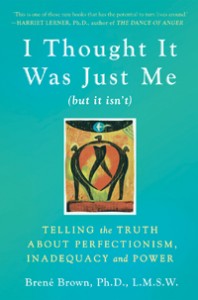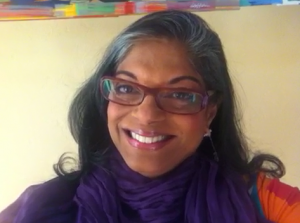Don’t let shame eat you out of house and home…..
Tag Archives: Shame
De-friending fear…
Oh how Facebook has reduced us to junior high feelings all over again.
 Those feelings weren’t that great the first time around. Now they are possibly worse because, on top of the same old teenage insecurities floating to the surface we have that feeling that OMG, really, I am a grown adult and am so emotionally involved in who is my friend or not on Facebook.
Those feelings weren’t that great the first time around. Now they are possibly worse because, on top of the same old teenage insecurities floating to the surface we have that feeling that OMG, really, I am a grown adult and am so emotionally involved in who is my friend or not on Facebook.
REALLY? Grow up!
The inner monologue goes something like this:
Will you be my friend?
Did you like my post?
Why did not you like my photo?
Why didn’t you comment on my post on your wall?
How come you didn’t Facebook me?
The inner voice is louder now: “What’s wrong with me that you do not want to be my friend or like the shit I post?”
Any of these statements ring true to you?
I shake my head in wonder of myself.
I recently had to de-friend someone who I thought was my friend but who did not act like my friend.
My finger hovered over the button to click as I planned on de-friending that person.
Oh the shame to de-friend….
The shame that I did not want to be their friend.
The shame that I was being mean or I was acting like a bitch.
The shame I would hurt their feelings.
The shame that as much as they wanted to be my friend…..I did not want them to be mine.
But the shame is that other person did not respect me, my rules, terms, conditions or non-conditions (as the case may be) of being MY friend.
Why should we feel shame de-friending someone who is not being a friend.
I click “de-friend”. I did it.
Oh the guilt. I have been de-friended and I know what it feels like to be de-friended. It’s like HEY I thought we were friends what the HELL is wrong with you to de-friend me? What did I do wrong?
Oh the guilt, will they call, text or email me asking me why? What will I say?
The guilt if I made someone feel less of a person because I did not want to be their friend.
It is amazing how this thing called Facebook can evoke these and so many emotions.
There is my Facebook friending insecurities rant.
Now I have one less friend….so friend me, I have a spot to fill!
Spit in my face? What does that mean?!
When you spit in my face…what does that mean?
A few weeks ago, I saw a man spit in a woman’s face.
He straightened up and spit, aiming right for her face.
She was stunned.
She froze and she looked like a deer in the head lights.
What was he trying to communicate?
What words would he have chosen if he had chosen to speak words instead?
What could he have been thinking when he CHOSE to spit in her face?
Will she choose to go back to him?
Will she choose to forget her humiliation and her embarrassment?
Will her friends and family make her feel like she should put it behind her?
Will she succumb to the voices that say it may have been her fault?
Will people expect her to explain her behaviors?
What else might he do?
What other insults has she or will she suffer?
When is it enough?!
What have you been exposed to that has made you feel like this woman?
When will enough be enough?
Who can decide?
ONLY YOU.
Only YOU.
Love and light
Indrani
Is school making your child crazy?
Is school making your child crazy?
“The purpose of school should be to prepare kids for the rest of their lives, but too often what kids need to be prepared for is surviving the school day itself.” Susan Cain, QUIET
For the parent of a child who is being bullied, the above quote must be especially poignant…that is, if you are lucky enough to be told that they are being bullied. This blog is not about bullying but about being SHY and being ashamed of being shy.
Dr. Brene Brown tells us that shame says “I am bad.”
If a child has learned to be ashamed of being shy and is cajoled or taunted to be more outgoing, this child may feel that being shy is so bad that their existence is useless.
I feel that many shy children feel invisible. They know they have the right answers, but are afraid to put their hands up and speak out loud in the classroom. They cannot get full marks on any report card because a grade is being given for “class participation”. Many want to participate and when they work one-on-one they can have exciting
conversations, but in a group they freeze.
Telling this child to be something other than what they really are will not make them change. As parents and educators we have to learn how to work with the introversion so that the child can feel pride about their ability to be reflective, and introspective. We have to show them that their minds works differently and beautifully and show them how to find ways to be a part of the group, but in a way that feels safe to them.
“The truth is that many schools are designed for extroverts,” says Susan Cain.
So what do we do as parents and advocates for our introverted kids?
“When encouraging shy children to speak…it helps to make the topic so compelling that they forget their inhibitions.”
As parents and educators we can take sincere interests in the activities of the introverted child and use the love of those activities to encourage them to talk.
During the summer months, while kids are out if school, the time is right to begin the project of speaking up and out in the safety of one’s home.
These skills are important, if only to be able to tell others to stop bullying them. Being able to speak up for ones emotional health is skill that we must teach our children. They are the future leaders.
In the May 21st, 2012 issue of Fortune Magazine, Doug Conant, the former Campbell Soup CEO gives some great advice.
He says:
1. “Don’t change who you are…people are not mind readers- you need to let them know if you are shy.”
2. “Say what’s on your mind…I’ve met so many leaders who realize that telling your colleagues something that is on your mind is so much easier than keeping it in.”
3. “Know who you work with…You might just find that you have introverts embedded within your organization who are natural-born leaders.”
4. “Find alone time…Introverts get more energy by having quiet time, compared with extroverts who find energy by being around people.”
This advice from Mr. Conant shows that introverts in the work force have a lot to contribute, and as parents/educators of these future leaders we owe it to them to prepare them for their whole lives…a life full of other people and challenges beyond those of childhood.
I hope you take up this project, it is well worth it.
Love and light,
Indrani
Shame thy name is FEAR and PAIN
I have had the great fortune of being immersed in the teachings of Dr. Brene Brown (see her on TED.com here)
 The work that we are doing is focused on shame and guilt.
The work that we are doing is focused on shame and guilt.
Dr. Brown’s work on SHAME can be found in her book I Thought It Was Just Me. I recommend it, HIGHLY. Until you get the chance to read it, here is what I have learned in just one day.
Shame says I AM BAD.
Guilt says I DID A BAD THING.
Her definition of shame is: Shame is the intensely painful feeling or experience that we are flawed and therefore unworthy of love and belonging.
Dr. Brown says that “we all have shame; we just don’t talk about it”. According to Dr. Brown, people who can be resilient to shame are those who “can get to language fastest”.
What does this mean? Let me try to explain. Shame is felt in the part of the brain that has no language. Language comes from the logical side of the brain. When a person tries to describe shame they have to create a bridge from the emotions they feel and the language to describe what they are feeling. Her suggestion is to NAME it.
Feel it Name it.
So it goes something like this: I organized a Flash Mob in my town and many people signed up. A blogger decided that I “could be a cult” and he pasted that in his blog. When I found out about it, I felt shamed. I felt shamed because I thought I was stupid for organizing it. I had thoughts like “who do you think you are to do this?”, “you are too old to be doing stuff like this”.
Lucky for me, I was able to talk it through with someone dear to me and I was able to let it go.
Notice I said someone DEAR. It MUST be someone who has EARNED the right to receive your deepest hurts. It cannot be a person who is self-absorbed, or someone who always tells you their troubles are bigger than yours.
You must be able to say something like: “I am hurting and this is how I am feeling”. Your trusted person must be able to hold space for your pain, without trying to solve it or minimize it. When you are in shame, Dr. Brown says that “you are not fit for human consumption”. She also says “do not go to your children until you have processed it”.
How do you process it? Feel it Name it.
This topic is heavy and it may make you uncomfortable.
If our society does not learn to deal with shame, we will continue to do what we have done, and get what we’ve always got. I did not come up with that catchy phrase myself and I do not remember who said it, but that does not make it any less relevant.
Are you ready to do some work around Shame? Read Dr. Brown’s book…I Thought It Was Just Me.. and begin to become Shame Resilient.
Love and light from Indrani

